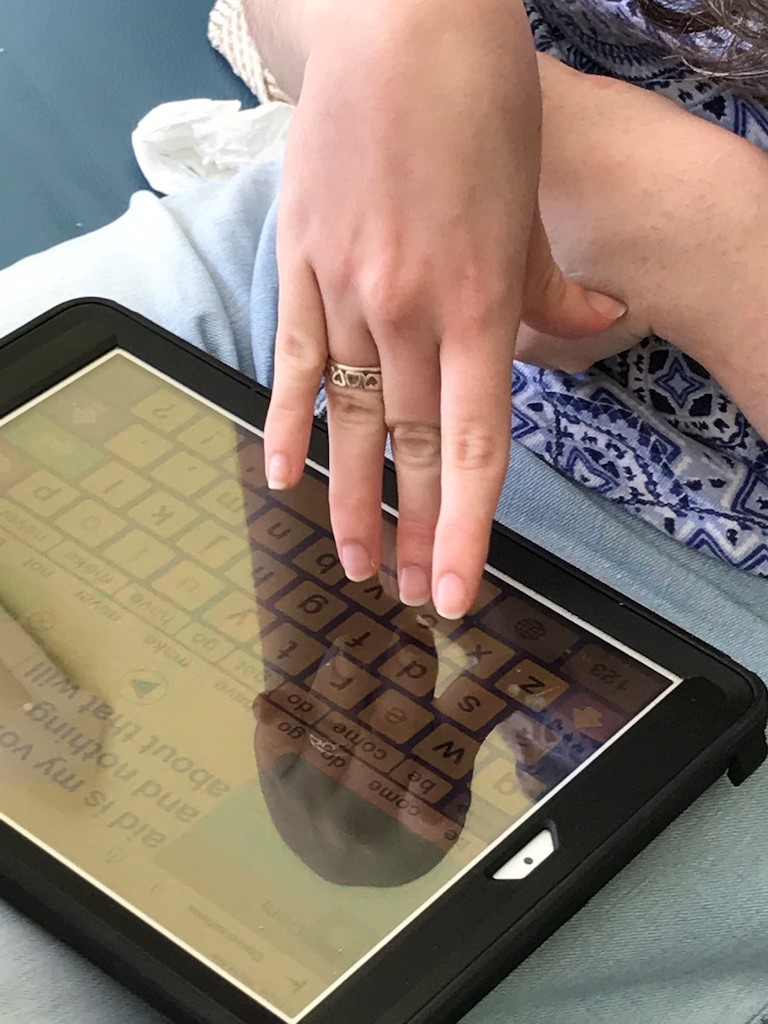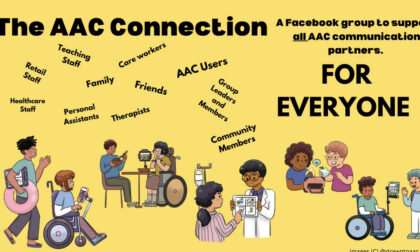Due to the pandemic I have been doing a lot of video conferencing with people I normally see in person. In face to face conversations some people understand my speech, and for spontaneity and speed my personal assistant often repeats what I’ve said verbatim. When I use my communication aid people can see what I am doing and usually know to wait for me to finish composing my message.

On any video conference I’ve found it hard to get a word in. After discussing this with my support team at UK Boccia we have adopted the following strategy that works for me:
- when I want to contribute I put something (anything including just a letter) in the message box on the video platform
- the conference leader acknowledges this and I prepare my contribution, everyone else continues to talk
- when I’m ready I put something else into the message box and wait
- the conference leader brings me in to the discussion reminding everyone where we were at when I wanted to speak
- after I’ve made my contribution, and following any discussion, the conference leader recaps what I missed and we continue.
To facilitate this discussion we talked about the speed of my contribution, most people with a natural voice speak at 150 to 210 words per minute. When I am using my communication aid my input speed is around 20 words per minute, although when I have pre-programmed I deliver this at about 80 words per minute. I choose to do this at a slower rate than natural speech to give listeners a chance to assimilate what I am saying.
In life generally my key messages for my communication partners are straightforward, I’m pleased if they can:
- Respect my choice of communication, be it voice, sign, electronic communication aid or body language
- Be patient, wait for me to compose my message, please don’t walk away
- Try to look interested whilst I’m composing
- Not interrupt when I’m composing
- Not finish my sentences to speed things up
- Let me say what I need to say, I wouldn’t put words in your mouth
- Not correct my spelling, even if you think it’s wrong, the message matters not the spelling
- Not look over my shoulder to read the message, unless I invite you
- Help me maintain my privacy, my screen is also my phone so my text messages are personal
Good communication skills are a joy in any conversation.
Now you are here please look around my website. There is a communication section which has some AAC communication resources that I have created, or been part of creating, over the last few years.





If you found this interesting or
helpful please feel free to share.